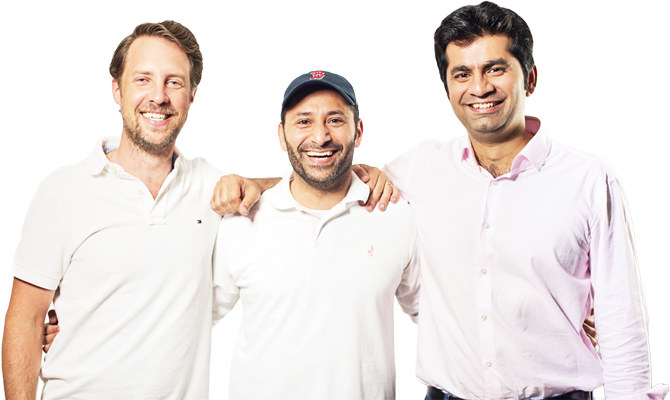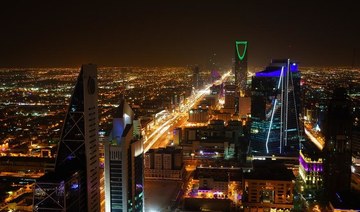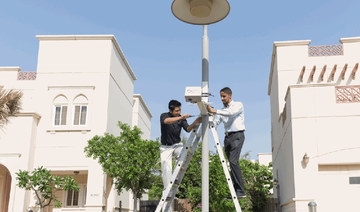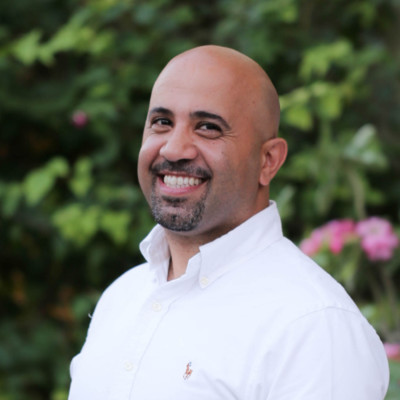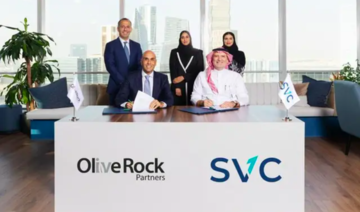BEIRUT: Since 2009, the Middle East and North Africa (MENA) region has come a long way in making its mark on the global entrepreneurship map. The following are some of the biggest milestones of the MENA ecosystem over the past decade as compiled by Arabnet, one of the region’s leading events and insights companies focused on technology business and innovation.
2009: Yahoo! buys Maktoob
In one of the region’s biggest transactions to date, Jordan’s Maktoob.com was acquired by Yahoo! in August 2009 for $164 million. Maktoob, founded in 1999 by Samih Toukan and Hussam Khoury, was the world’s first free Arabic/ English web-based email service, which grew to a major media portal with 16.5 million unique users.
2010: Middle East Venture Partners (MEVP) launches
Founded by Walid Hanna in Beirut, MEVP is a venture capital firm that invests in early and growth stages of companies, particularly focusing on start-ups in the Gulf and the Levant. It is known as the largest venture capital firm in MENA. MEVP has made 64 investments to date, including in The Luxury Closet, Magnitt and Volt Lines.
2010: Wamda goes live
Another very well-known name is Wamda, a MENA-based platform that accelerates entrepreneurship ecosystems throughout the Arab world. Launched by Fadi Ghandour and Habib Haddad, it also encompasses the venture capital fund Wamda Capital (launched in 2014), and the fellowship program Wamda X.
2011: Hello, Flat6Labs Cairo
Eight years on and Flat6Labs — a regional start-up accelerator program and seed investment company — has gone on to launch in Jeddah, Abu Dhabi, Tunis, Beirut and Bahrain, managing four seed funds worth a total $50 million. Flat6Labs has so far received more than 15,000 start-up applications from across the region and beyond.
2012: Anghami arrives
Beirut-based Eddy Maroun and Elie Habib decided to come up with a music streaming service to rival the likes of iTunes, but going a step further by providing unlimited Arabic and international music (Apple later stepped up its Arabic music portfolio). Anghami licenses music from major regional record labels such as Rotana, Platinum Records and Universal. It has so far raised $14.3 million in funding.
2012: Facebook comes to MENA
This was also the year Facebook arrived physically in the region, launching its first MENA office in Dubai. The move paid off. According to a report released two years ago, Facebook inccreased its active user base in the region by 264 percent from 45 million since opening its MENA base.
2013: RiseUp Summit launches in Egypt
Given the political instability, this was a year when many Egyptian youth had a pessimistic view of their future. Abdelhameed Sharara and Con O’Donnell wanted to change this, so they founded RiseUp Summit, dubbed the country’s largest entrepreneurship and innovation event. According to Entrepreneur ME magazine, RiseUp made 600,000 Egyptian pounds ($33,000) in revenue that first year. Six years on, that figure has grown to an estimated 23 million pounds ($1.25 million).
2014: A Lebanese success story
Before the Japanese recipe portal Cookpad announced its acquisition of Netsila, the Lebanese company behind Shahiya.com, it was worth $2.5 million. Post-announcement — in which Cookpad revealed it was buying it for $13.5 million — Netsila’s valuation jumped more than five times higher, resulting in an internal rate of return of almost 100 percent.
2015: Tweet, tweet MENA
Twitter’s MENA headquarters arrived in 2015, with the aim of increasing its ad sales and partnerships in the region. This month, CEO Jack Dorsey visited the UAE for the first time to launch — together with the UAE’s Youth Hub and Shamma Al-Mazrui, the minister of state for youth affair — the #YouthForGood philanthropic initiative. The meeting took place in the presence of Sheikh Maktoum bin Mohammed bin Rashid Al-Maktoum, deputy ruler of Dubai.
2016: A year of firsts
This was quite a big year for the region, with many notable launches, including the Small and Medium Enterprises General Authority (Monsha’at) in Saudi Arabia, the Oman Technology Fund, MENA’s 500 Startups and the Dubai Future Foundation. To add to that, the UAE’s Careem raised $350 million, making it the Middle East’s first unicorn.
2017: Noon.com goes live
A local e-commerce giant to rival the likes of Amazon and Souq, Mohamed Alabbar, the Emaar Properties chairman, invested a mammoth $1 billion in Noon.com. “It’s the biggest risk in my life that I’ve taken,” said Alabbar at the 2019 edition of the TiE Dubai Summit. “For me to be able to even be brave enough, after making billions in my real estate business, I really (didn’t) have to go into digital. Why should I? (But) I cannot accept that our region will be taken over. I will not accept it.”
2017: Amazon completes its acquisition of Souq.com
Coincidentally, Alabbar had initially been interested in acquiring Souq.com, the online retailer founded in 2005. But it ended up going to Amazon for $580 million.
2018: Fintech goes mainstream
According to the business intelligence arm of Arabnet, MENA’s financial technology (fintech) start-ups exceeded 100 in 2018. The industry uses tech solutions to compete with traditional financial methods in delivering of financial services. Some of the region’s best-known fintech start-ups include PayTabs, Moneyfellows, Beehive and Yalla Compare.
2019
The top story to come out of 2019? It could well be March’s announcement that ride-hailing app Uber acquired its MENA counterpart Careem for $3.1 billion. This is to date the largest technology industry transaction in the Middle East.
• This report is being published by Arab News as a partner of the Middle East Exchange, which was launched by the Mohammed bin Rashid Al Maktoum Global Initiatives and the Bill and Melinda Gates Foundation to reflect the vision of the UAE prime minister and ruler of Dubai to explore the possibility of changing the status of the Arab region.



